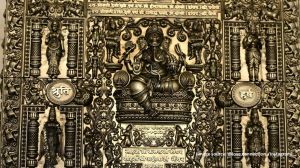Fuel for CMs
States cutting oil taxes deliver a complex and welcome political message to national parties

The easy and lazy way to analyse states cutting fuel taxes would be to label the fiscal decisions as an extension of oil politics at the Centre. But there are two key differences. First, while at the Centre the real fiscal situation is grim, in part because of oil bonds, states are fiscally relatively better off. This makes state-level reductions in fuel taxes fiscally more palatable. Indeed, to the extent that some states had really high taxes on fuel like diesel, the cuts were desirable even without the political anxiousness that preceded them. Part of this story also includes VAT. State revenues have responded positively to VAT and the many scare stories about falling accruals now look plain silly. The second difference in the way the state fuel tax cuts should be read is more interesting: proof of political change.
When national party leaders direct chief ministers to cut fuel taxes to mitigate the Central price hike it may look like diktat from headquarters but there8217;s a more complex political reality behind it. National party leaderships know, or they are realising belatedly, as in the case of the Congress, that voters8217; assessment of politicians is increasingly mostly influenced by their immediate surroundings. So how sympathetic parties are to the idea of rising fuel bills will be best communicated by chief ministers, not by Sonia Gandhi or L.K. Advani or Prakash Karat. With general election firmly on every politician8217;s mind, popular, pragmatic and effective state-level leaderships are becoming crucial for national parties.
There are consequences of this that have so far not played out, but most likely will in the near future. One is the balance of power between national leadership and state-level leaders. So far, even powerful chief ministers have paid court to national leadership. But as India votes as a sum of regional verdicts, some change is probably inevitable. National leaderships will have to learn to acknowledge their debt to regional vote-getters more explicitly. The Congress perhaps will undergo the most severe culture shock in trying this. The other possible change, probably farther off but no less likely, is that competition for top national leadership will expand. Some chief ministers already have big national ambitions. More will acquire this trait. All this is to the good. India8217;s national parties need a jolt to their structure. What better means to deliver it than via the states of the union.
- 01
- 02
- 03
- 04
- 05































